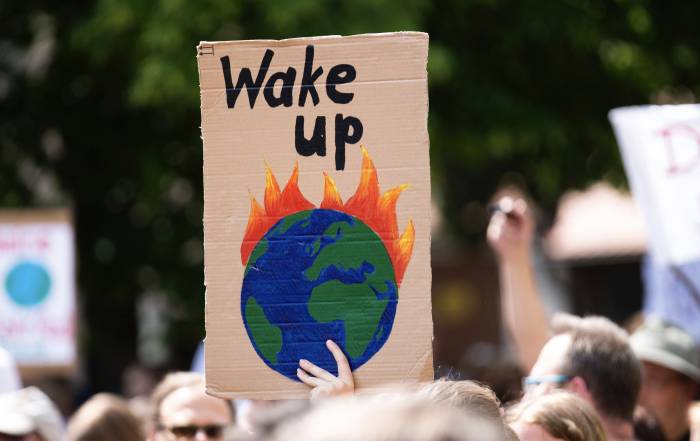Two years ago, on the 8th of October, the Intergovernmental Panel on Climate Change published a special report on 1.5 degrees. It included over 6,000 scientific references and was compiled by 91 authors from 40 countries.
The report outlined how 1.5°C is a red line for our survival and a more stable climate; and how the window for keeping warming below that limit is closing fast. It demonstrated that to keep global warming below 1.5°C, coal, oil & gas needed to stay in the ground- meaning no more fossil fuels. And it confirmed, what we know, that powerful vested interests – the fossil fuel industry and its supporters – are trying to prevent and delay this transition. These vested interests are the main reason we are on the current trajectory of 3°C+ warming.
It was the starkest and most compelling yet single piece of research on the climate crisis, and it called for a massive mobilization of public and private resources, rapid changes in our economic and energy systems, and a plan to restore the balance between nature and mankind.
Fast forward two years and amid a global pandemic, governments mostly reacted to the coronavirus threat by enacting an unprecedented series of drastic measures (often with negative impacts on the most vulnerable) and putting unfathomable amounts of money on the table to preempt economic collapse.
Yet, the equally urgent action needed to address the climate crisis still falls woefully short of where it needs to be. If anything, governments and financial institutions have aided and abetted the fossil fuel industry to make the problem so much worse.
- Rich G20 governments, export credit agencies and development banks have kept funneling tens of billions of dollars into fossil fuels, increasing loans and direct subsidies to this sector since the Paris Agreement was signed
- Governments are planning to produce 120% more fossil fuels than would be consistent with the 1.5°C threshold
- Despite lofty 2050 carbon neutrality announcements, all eight major oil companies are still planning to expand their fossil fuel production to 2030 and have no credible pathway to self-manage their decline or turn into 100% renewable energy companies
- There is massive carbon inequality in the world, with the richest 10% being responsible for over half of cumulative emissions over the past 25 years, while the poorest 50% is only responsible for 7% of it.
Since the IPCC 1.5C report was released, countries across the globe have been feeling the impacts of climate breakdown. Floods have devastated livelihood and lives, in the African continent millions of people have been affected. In July 2020 a third of Bangladesh was underwater. In January, wildfires ravaged parts of Australia, and this week a new classification of wildfires were determined – Giga fires. The list of devastating climate impacts goes on, striking communities hard and adversely affecting those most vulnerable to climate change.
Yet the fossil fuel industry carries on, propped up by the banks that support them- with companies such as Exxon planning to increase carbon emissions 17% year on year rather than reduce them, and many oil companies making meaningless pledges to be carbon neutral by 2050, all the while planning to expand production.
The tide is turning.
If the last two years has been characterized by the lack of action from governments to seriously grapple the climate crisis, it has been counteracted by the global people-powered action that has accelerated in the last two years. The climate movement was lifted by the youth climate strike movement and groups like Extinction Rebellion which catapulted the climate crisis into the mainstream. In September 2019, 8 million people, inspired by the youth climate strikes took to the streets to demand action on climate change. On the 12th of December, the UK government is hosting a COP26 climate summit to push for countries to make further progress in committing to reduce emissions. It is imperative the world leaders stand up to take the action we need
COVID-19 has shown the world what we can achieve when we take action together as one planet. The devastating impacts of the virus, the need for collective action have meant that we have come together as a global community like never before. The climate crisis demands that we do the same, to fight for the #WorldWeWant for a #JustRecovery.
